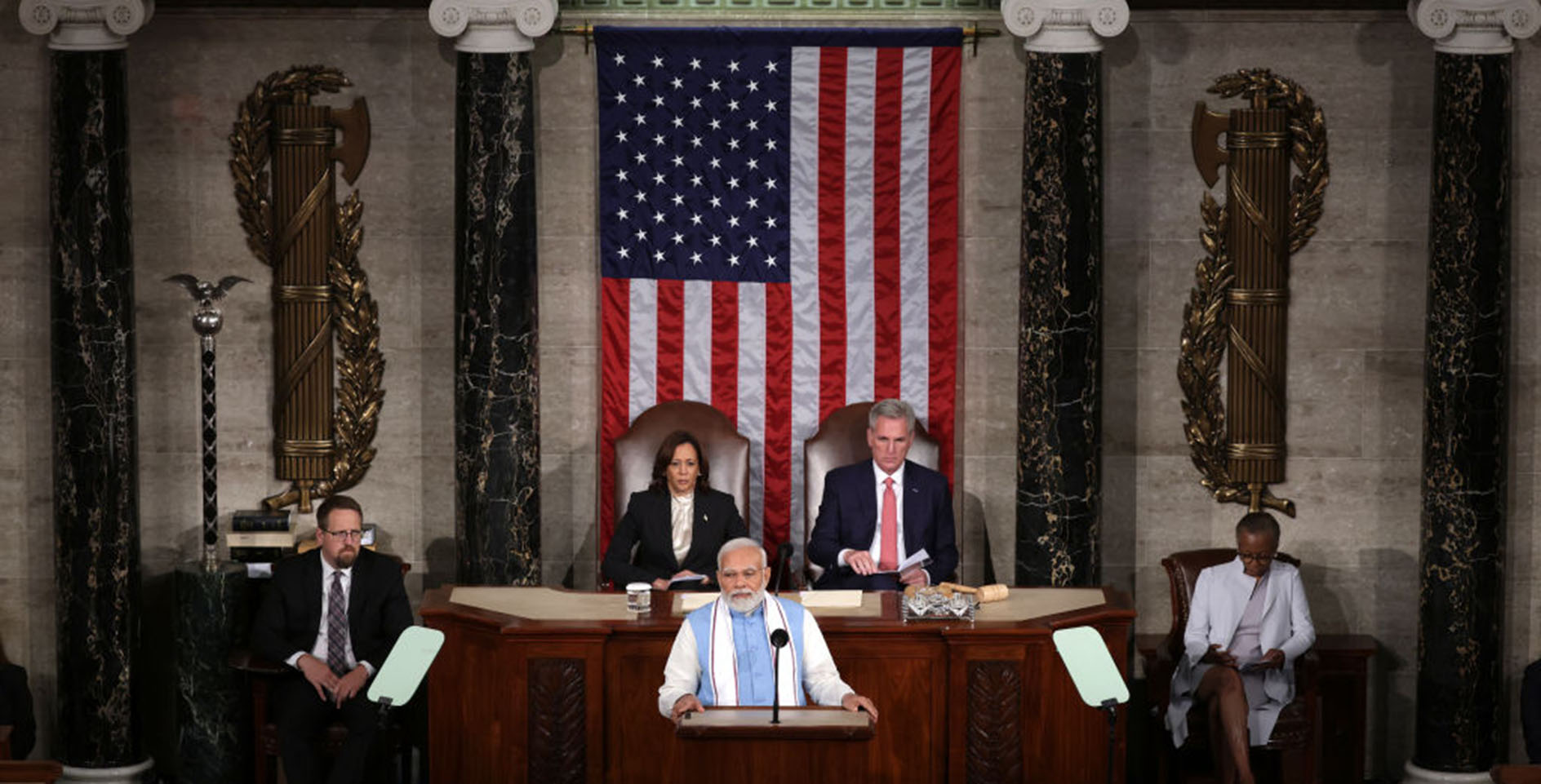Recent reports of intensifying religious persecution in India have exposed the increasingly dire state of religious freedom and human rights within the country.
In a joint statement released by the White House on June 22, President Biden and Prime Minister Narendra Modi announced several new technology, defense, and research initiatives that are set to bolster the economic ties between the United States and India. The statement came during Modi’s recent visit to Washington, D.C., signaling the Biden administration’s clear intent to further pivot U.S. foreign relations in the Indo-Pacific by privileging the nation which now boasts the largest democracy in the world with a greatly expanded trade partnership.
Undoubtedly, this announcement will come as welcome news to many who are excited by the prospect of establishing India as a more reliable supplier of semiconductors to the U.S. and as a more militarily-secure neighbor to the Chinese Communist Party.
Alarming reports about religious persecution in India
In its 2023 report on religious liberty in India, the United States Commission on International Religious Freedom (USCIRF) recommended that Secretary of State Anthony Blinken designate India a “country of particular concern,” after finding increased instances of religious persecution in India against Muslims, Christians, and other religious minorities taking place on the “national, state, and local levels.” The report listed legal prohibitions against religious conversion as well as mob violence and sexual violence against religious minorities amongst the offenses observed by the commission.
As such, it determined that India satisfies the International Religious Freedom Act’s definition of a country engaged in “systematic, ongoing, and egregious violations of religious freedom” and should face U.S. sanctions until these violations cease.
According to a statistical analysis conducted by the Early Warning Project (EWP)—an operation of the United States Holocaust Memorial Museum that works with publicly available data to identify social trends predictive of genocide—the religious violence in India has escalated so much in recent years that the nation currently ranks as the eighth most likely in the world to see a “new mass killing” over the next year. To understand just how real this looming threat of mass violence in India truly is, one need only look to the northeastern state of Manipur where, in just the last two months, mobs have burned down over 250 Christian churches in what some locals have reportedly described as a “state-sponsored pogrom.”
The USCIRF and EWP reports both recognized the rise to power of the Bharatiya Janata Party (BJP) within the Indian government since 2014 as the catalyst for much of this violence. The BJP is the party led by Modi that serves as the political embodiment of a radical Hindu nationalism which has become widespread in India. The party’s officials stand accused of intentionally stoking the fires of prejudice against the nation’s religious minorities and of working in tangent with extremist paramilitary groups committed to the formation of a true “Hindu state.”
The U.S. response to religious persecution in India
Despite these alarming reports, the current administration has failed to act on USCIRF’s recommendation to designate Modi’s India as a “country of particular concern.”
Modi was instead honored by the government with a state dinner and a congressional address during his recent visit to the U.S. capital. In his address to the nation’s lawmakers, Modi invoked the powerful memories of both Mahatma Gandhi and Martin Luther King Jr., insisting that India honors the legacies of these great men in that it demonstrates their shared democratic values of “equality and dignity” and is a “home to all faiths.”
But with recent reports on the human rights abuses and the religious persecution currently transpiring in India, it seems unlikely that either Gandhi or King would recognize the brand of democracy and religious freedom found in Modi’s country today. And the Biden administration’s ongoing failure to officially acknowledge that reality by ignoring the appeal to designate India a “country of particular concern” spells only further dismay for India’s vulnerable religious minorities as the violent rhetoric and actions against them continue to intensify.
Looking ahead
There is still hope that increased political pressure can move the current administration toward adopting the USCIRF recommendation. Rep. Ilhan Omar (D-MN) took Modi’s visit as an opportunity to introduce a resolution into the House that calls Blinken to acknowledge and act on the USCIRF report’s findings.
The introduction of this resolution, alongside increased advocacy efforts on behalf of the religious minorities in India, should send a clear message to the current administration. It is not acceptable for our government to ignore the cries of persecuted people or look away from grave human rights abuses in order to advance economic, environmental, or geopolitical goals.
More must be done to hold India accountable for its role in allowing and facilitating persecution and abuse against religious minorities. Southern Baptists have long believed that the state has no right to impose penalties for religious opinions of any kind and that the individual should be allowed to freely pursue the knowledge and love of God. The ERLC remains committed to advancing this position in the public square and will continue to advocate for the safety and freedom of religious minorities facing persecution in India and elsewhere.










